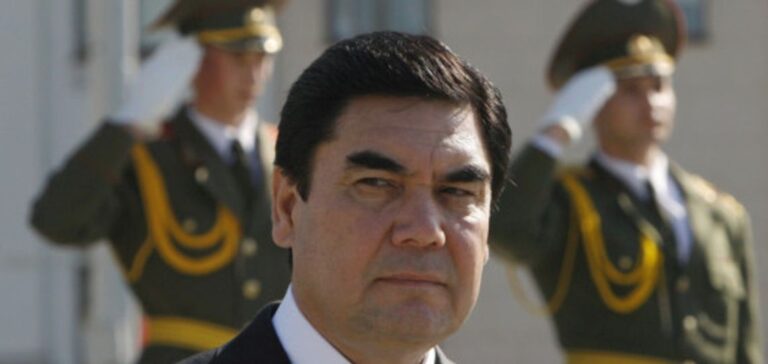President Emmanuel Macron hosted Gurbanguly Berdymukhamedov, Chairman of the People’s Council of Turkmenistan and key figure of the Turkmen regime, at the Élysée Palace during an official visit centred on the signing of bilateral agreements. The French presidency did not disclose specific information regarding the content of these deals. The meeting marked a rare diplomatic engagement, as Turkmenistan maintains limited visible relations with Western leaders.
A strategic visit focused on gas reserves
Turkmenistan holds some of the world’s largest natural gas reserves, drawing increased interest as Europe reshapes its supply networks. Since severing energy ties with Russia, the European Union has sought new sources of energy, and Turkmen gas is emerging as a strategic option. In April, Brussels announced a €12bn ($12.9bn) investment plan for Central Asian infrastructure under its Global Gateway programme.
The proposed Trans-Caspian pipeline linking Turkmenistan to Azerbaijan and eventually to Europe remains under consideration. Despite long-standing advocacy by Ashgabat, the project has yet to secure concrete funding. Challenges include the lack of multilateral agreements on the Caspian Sea and strong competition from China and Russia, both already well established in the region.
French firms active in a closed market
Despite modest trade flows totalling €74.6mn ($80.2mn) in 2023, France maintains a visible presence in Turkmenistan. Construction firms Bouygues and Vinci have signed multiple contracts to build public infrastructure in the capital, responding to state-driven projects under the Turkmen administration. These initiatives are closely tied to political leadership in a country where institutions are tightly controlled.
The centralised nature of Turkmen governance raises concerns about the transparency of ongoing economic deals. The concentration of power between Gurbanguly Berdymukhamedov and his son Serdar, the country’s president, limits access to official data and increases the risk of overlap between public and private interests.
Bilateral diplomacy under scrutiny
The Turkmen leader’s visit comes at a time when Western powers are increasingly cautious about the political implications of their energy commitments. Turkmenistan is frequently ranked among the world’s most restrictive nations in terms of civil liberties. Few European leaders have travelled to Ashgabat in recent years, aside from Hungarian Prime Minister Viktor Orbán in 2023 and German Chancellor Angela Merkel in 2016.
By hosting Berdymukhamedov, Paris is pursuing a pragmatic foreign policy approach within a context of escalating international energy rivalries. However, the strategy brings governance and legitimacy challenges when economic flows depend on regimes with consolidated power structures.






















